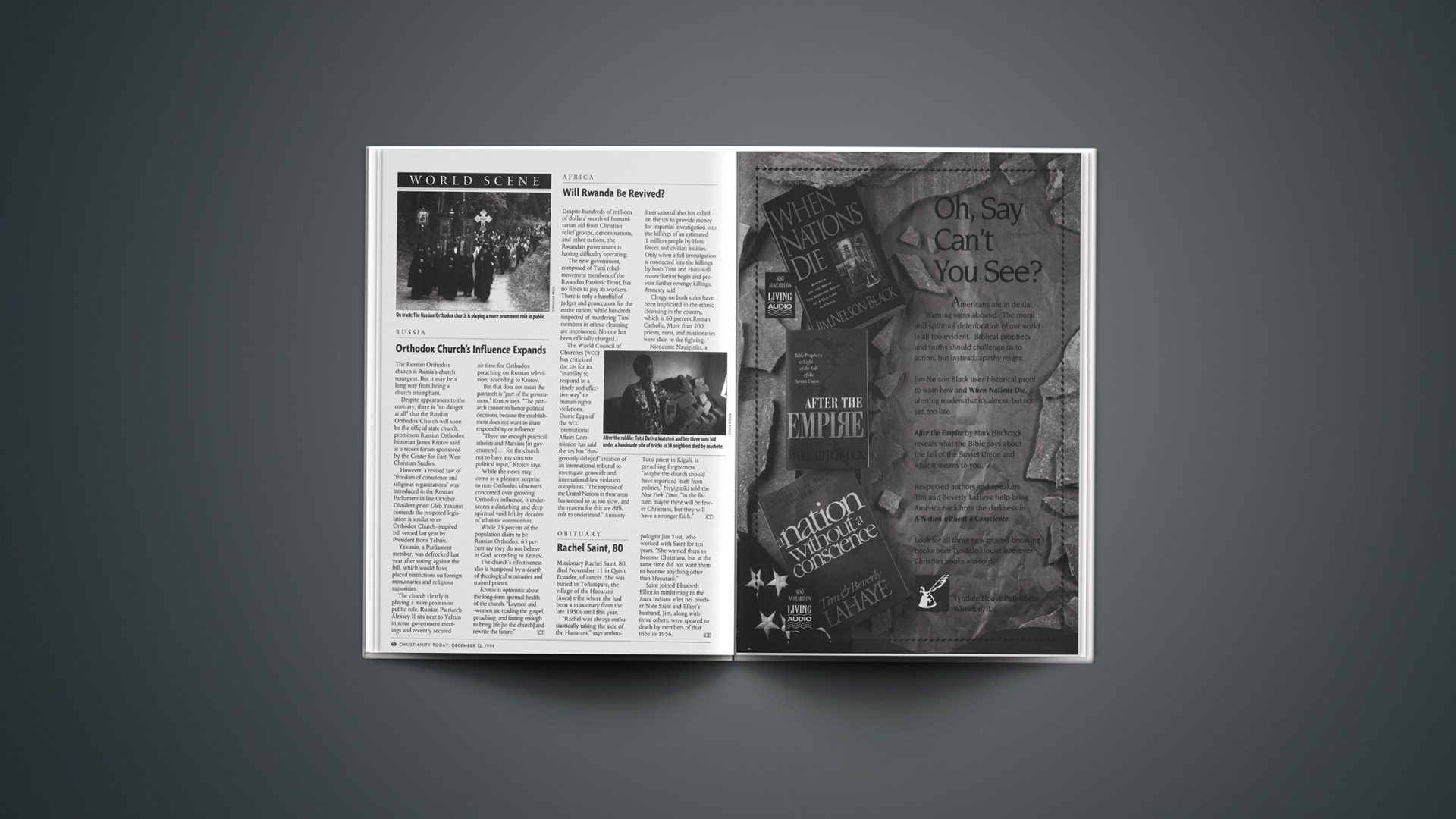Despite hundreds of millions of dollars’ worth of humanitarian aid from Christian relief groups, denominations, and other nations, the Rwandan government is
having difficulty operating.
The new government, composed of Tutsi rebel-movement members of the Rwandan Patriotic Front, has no funds to pay its workers. There is only a handful of judges and prosecutors for the entire nation, while hundreds suspected of murdering Tutsi members in ethnic cleansing are imprisoned. No one has been officially charged.
The World Council of Churches (WCC) has criticized the UN for its “inability to respond in a timely and effective way” to human-rights violations. Duane Epps of the WCC International Affairs Commission has said the UN has “dangerously delayed” creation of an international tribunal to investigate genocide and international-law violation complaints. “The response of the United Nations in these areas has seemed to us too slow, and the reasons for this are difficult to understand.” Amnesty International also has called on the UN to provide money for impartial investigation into the killings of an estimated 1 million people by Hutu forces and civilian militias. Only when a full investigation is conducted into the killings by both Tutsi and Hutu will reconciliation begin and prevent further revenge killings, Amnesty said.
Clergy on both sides have been implicated in the ethnic cleansing in the country, which is 60 percent Roman Catholic. More than 200 priests, nuns, and missionaries were slain in the fighting.
Nicodeme Nayigiziki, a Tutsi priest in Kigali, is preaching forgiveness. “Maybe the church should have separated itself from politics,” Nayigiziki told the New York Times. “In the future, maybe there will be fewer Christians, but they will have a stronger faith.”
Copyright © 1994 Christianity Today. Click for reprint information.










